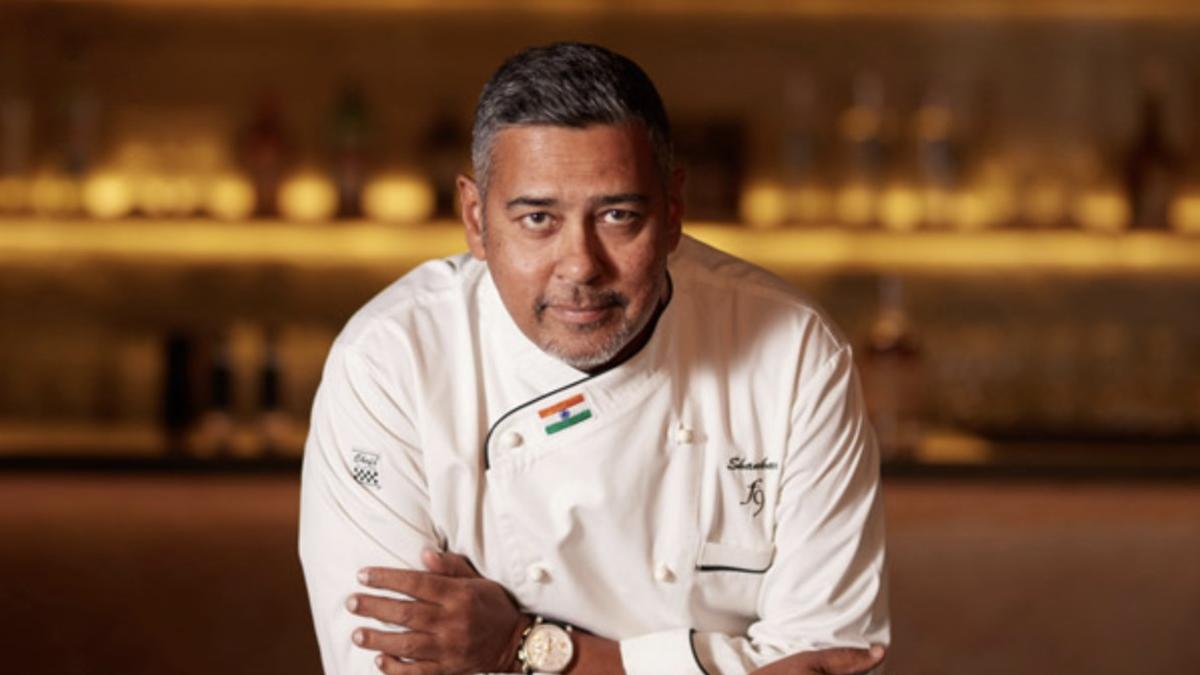
Invite your guests home and then book a chef
The Hindu
Book My Chef offers gourmet dining services at home with skilled chefs and customisable menus in Hyderabad and Mumbai.
Nothing can be more relaxing than hosting guests at home to gourmet dishes without having to think of ingredients, prep and cooking time. Getting food catered is old and boring. If you want a gourmet dinner, what most people do is either head out to a fine dining restaurant or cook it for themselves. Having a professional chef come home to cook for you or a group of friends may seem like a dream. Not anymore; this is actually happening in Hyderabad, and the people who cook are chefs and not everyday cooks.
Book My Chef, a mobile app-based private chef booking platform, offers diners the opportunity to enjoy personalised dining experiences from the luxury of their homes. The app provides a wide selection of skilled chefs and a customisable menu in a diverse range of cuisines like Indian, Indo-Chinese, European, Mediterranean, Thai, Italian, Mexican, Japanese, and East Asian cuisine, as well as fusion dishes.
Founded by Hyderabad-based chef Shankar Krishnamurthy, the service has already ‘cooked’ for more than 3000 customers in Hyderabad and is live in Mumbai too. Chef Shankar’s culinary journey since 1986 has seen him work in India and abroad and turn foodpreneur with Hyderabad’s first global restaurantFusion9, and Voila f9 gourmet which has India’s one of the biggest commercial kitchens.
Shankar says, “I had introduced this service during COVID to help chefs who were out of work. The response made me realise there was a visible gap (chefs needed a side hustle and diners looked for a gourmet experience by chefs at home) and necessity. The entire process of interactive and fresher food was a win-win combination. The response was great; the vision to help the chef community with an alternative source of income worked well so I decided to develop it as an app-based service. The app provides an array of chefs specialising in various cuisines, ensuring a diverse dining experience for our clientele.”
BMC caters to Indian, Chinese, Continental requests and many more. Shankar describes the four-step process as simple. It involves selecting an event type, the number of guests (18-20), choice of cuisine and specific dishes from that cuisine. “Each dish is charged differently and the fee of each chef is around ₹3500 and an assistant is ₹1500. Once the order is placed, everything is tracked. We currently have about 200 odd chefs.”
Doesn’t hiring a chef to cook at home involve shopping for ingredients? “No. Everything — including the spices and the chef’s kit — is brought by the chef. We do ask about the kitchen set of the customer to understand how much is possible to cater to in the time slot. A lot of it also depends on the cooking range at home and how well-equipped the kitchen is, whether there is an oven if a baked dish is selected etc.”
Will they lay the table and serve as well? “If the host is willing to pay extra for table arrangement and plating, that too will be taken care of. Some guests even requested the chefs to stay longer to interact with the guests and explain the food,” he added.

“Writing, in general, is a very solitary process,” says Yauvanika Chopra, Associate Director at The New India Foundation (NIF), which, earlier this year, announced the 12th edition of its NIF Book Fellowships for research and scholarship about Indian history after Independence. While authors, in general, are built for it, it can still get very lonely, says Chopra, pointing out that the fellowship’s community support is as valuable as the monetary benefits it offers. “There is a solid community of NIF fellows, trustees, language experts, jury members, all of whom are incredibly competent,” she says. “They really help make authors feel supported from manuscript to publication, so you never feel like you’re struggling through isolation.”

Several principals of government and private schools in Delhi on Tuesday said the Directorate of Education (DoE) circular from a day earlier, directing schools to conduct classes in ‘hybrid’ mode, had caused confusion regarding day-to-day operations as they did not know how many students would return to school from Wednesday and how would teachers instruct in two modes — online and in person — at once. The DoE circular on Monday had also stated that the option to “exercise online mode of education, wherever available, shall vest with the students and their guardians”. Several schoolteachers also expressed confusion regarding the DoE order. A government schoolteacher said he was unsure of how to cope with the resumption of physical classes, given that the order directing government offices to ensure that 50% of the employees work from home is still in place. On Monday, the Commission for Air Quality Management in the National Capital Region and Adjoining Areas (CAQM) had, on the orders of the Supreme Court, directed schools in Delhi-NCR to shift classes to the hybrid mode, following which the DoE had issued the circular. The court had urged the Centre’s pollution watchdog to consider restarting physical classes due to many students missing out on the mid-day meals and lacking the necessary means to attend classes online. The CAQM had, on November 20, asked schools in Delhi-NCR to shift to the online mode of teaching.









